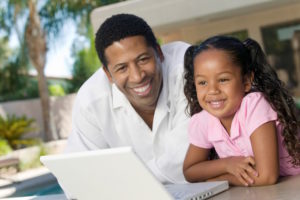
The latest educational push is for 21st century skills that include analysis, critical thinking and cooperative learning.
I don’t think we can protest that these skills aren’t worthy of developing.
But skills also require knowledge based on experiences that allow accurate and timely feedback.
For example, let’s say we have a recipe for chocolate chip cookies. Unless we have had the experience of eating a freshly baked warm homemade cookie, along with the knowledge on how to acquire the ingredients, possession of the necessary implements to bake cookies, as well as having the obligatory time and supervision to make cookies, not much meaningful learning is going to occur from analyzing the data of our recipe, critically or cooperatively.
The gathering and analysis of data without knowledge and meaningful experiences end up being so much high-tech busy work.
How do we create situations that assure these 21st century skills as well as provide ”pertinent” information?
Science research is telling us that we don’t remember most of what we learned in school.
When I pulled out my college chemistry textbook 20 years after the fact, I marveled that I ever knew any of the information. Conversely, my grade in beginning typing didn’t reflect that two years later I could type 75 words per minute on a manual typewriter.
Reflecting over my grade school years, here are some of the highlights:
In kindergarten I tripped over the slide projector cord, breaking the bulb. This was so traumatic that even to this day I don’t like using slide projectors. I was enthralled at recess by building leaf forts under the old oak trees. The lunch ladies also brought warm cookies and milk in the afternoon to our classroom.
In first grade, I continued to love to build leaf forts, and I learned to cross the monkey bars, hand over hand, which was quite difficult and took me most of the year to obtain the skill. And the lunch ladies brought cookies.
In second grade, my youngest brother was born, and helping take care of him was an important part of my life. At school, I asked my teacher about numbers to the left of zero on the number line that was above the chalkboard in our classroom. I was erroneously informed that there were none. I gave a report on Hawaii in second grade; my mother helped me make a poster that had coffee and sugar on it, and I served pineapple to my class. My grandfather also served in the Navy in Hawaii during World War II and became interested in studying military ships.
In third grade, I spent hours figuring out the puzzles and brainteasers in a Reader’s Digest book my grandmother gave me. After we finished our work in class, we were allowed to read. There was also a school contest on reading the most number of books, and between home and school, I read over 400 books that year, ending the year with Sherlock Holmes.
What I hope to help you see with my walk down memory lane is that the things I remember most about grade school are things I had a passion for and still do: my family, the outdoors, asking questions, solving problems, reading and…warm cookies.
Meaningful experiences create opportunities for learning higher thinking skills. Perhaps the skills we should mentor are helping children follow their interests, passions and dreams. Not only for the 21st century, but for all time.


My experience says that all the 21 st century skills requirement are the hallmarks of Montessori educational philosophy children who go through the three year early childhood Montessori program perform better in their future life.
My experience, too.